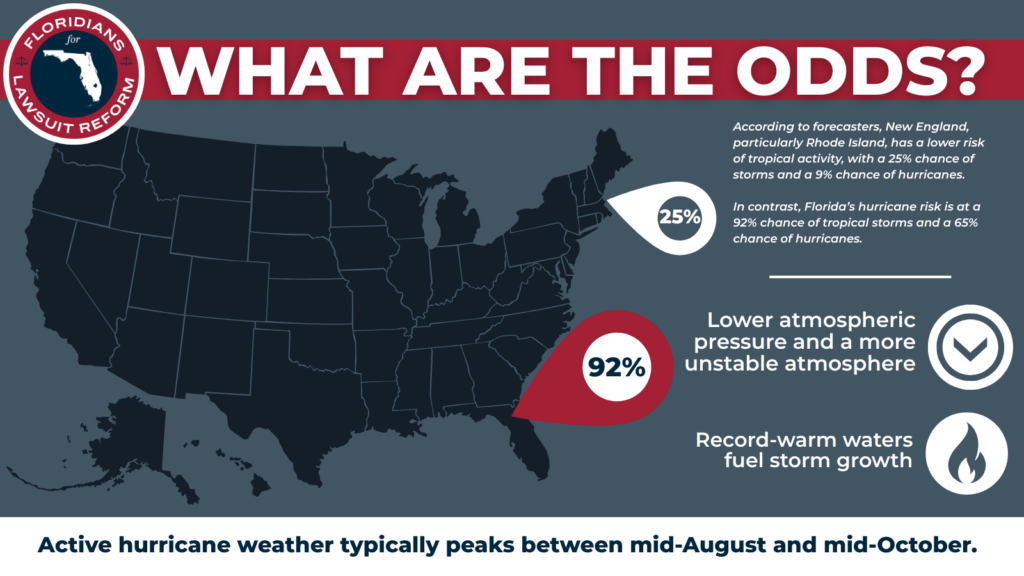
As the summer approaches so does hurricane season with forecasters warning that tropical storms could begin forming as soon as next month.
Meteorologists from Colorado State University recently shared an initial forecast for the 2025 Atlantic hurricane season warning that up to 17 storms are expected with nine of them becoming hurricanes.
The report included a state-by-state look at hurricane risk showing Americans the likelihood of a storm passing within 50 miles of their state.
Forecasters warn that Florida will see the highest hurricane risk with a 92% chance of being hit by a tropical storm and a 65% chance of being struck by a hurricane. Meanwhile, New England has a lower risk with Rhode Island facing a 25% storm chance and 9% hurricane chance.
Last month, AccuWeather released its forecast warning that another active season is coming “with multiple impacts on the United States.”
When does the 2025 Atlantic hurricane season start?
The Atlantic hurricane season officially begins on June 1 and will last through the end of November.
Active hurricane weather typically peaks between mid-August and mid-October.
Why hurricanes, tropical storms could form before June?
Though the six-month hurricane season officially begins June 1, storms have formed in May several times in recent years.
Forecasters from the National Oceanic and Atmospheric Administration will release their forecast in late May.
What areas does the Atlantic hurricane season include?
The Atlantic hurricane season includes all storms that form in the Caribbean Sea and the Gulf of Mexico, which was renamed this year to the “Gulf of America” by President Donald Trump.
Why are forecasters predicting an active hurricane season?
Colorado State University meteorologist Phil Klotzbach told USA TODAY last week that the Atlantic Ocean is “not as warm as it was last year at this time,” but most of the tropical and subtropical Atlantic is still warmer than normal.
A warm Atlantic favors an above-average season since a hurricane’s fuel source is warm ocean water. Additionally, a warm Atlantic also leads to lower atmospheric pressure and a more unstable atmosphere. Both conditions favor hurricane formation.
